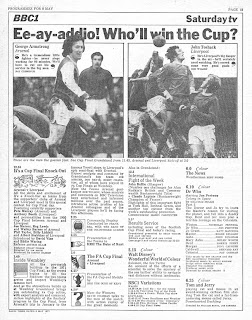Just as you remember your first kiss or your first job, to while away the summer, here is a day-by-day account of the first World Cup that I can remember.
I was too young for 1974 but eagerly looked forward to the 1978 world cup in Argentina. At the time, the people of Argentina were captive under a military dictatorship, but when you are ten years old you don’t worry about such things. In fact, I can’t recall any of the news events of 1978 – apart from the football.
England's hopes had departed along with Don Revie in 1977. It would be four more years before I would see England kick off a world cup proper campaign.
Scotland had qualified and, which with hindsight seems an astonishing miscalculation, many thought they had a good chance. On paper they certainly had a strong squad – stronger than today’s Scotland team – but was it strong enough? In the build up Andy Cameron charted with one of the most famous world cup songs ‘Ally’s Army’ – ‘and we’ll really shake ‘em up, when we win the World Cup, as Scotland are the greatest football team.’
The draw had taken place earlier that year. Group 1 had Argentina against the triple Euro attack of Italy, France and Hungary. Of course the hosts were expected to qualify comfortably but the other spot was wide open. In Group 2, holders West Germany faced Poland, Mexico and Tunisia. Nothing much for the Germans to worry about there.
Group 3 had Brazil also facing three European teams in Spain, Sweden and Austria (whatever happened to Austria?) and Group 4 had the Jocks facing Holland, previously beaten finalists and one of the main favourites, with Peru and Iran making the numbers – or so we thought.
Ten European teams out of 16 – you can see why world cups were felt to be imbalanced.
The rules were four groups of four with the top two qualifying – and then, oddly, the eight teams would be sorted into two more groups of four with the winner of each group playing in the final and the runners-up would be in the third place play off (no semi-finals!) There would be 38 games in all.
For this account, special credit goes to the web site run by 'upthemaggies' of ITV Football - link to the right.




